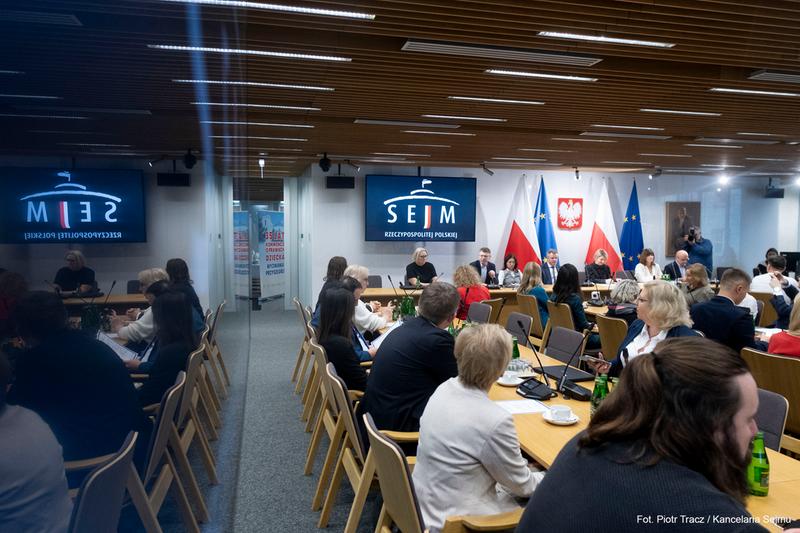This year marks 35 years since the UN General Assembly adopted a fundamentally important document – the Convention on the Rights of the Child, often referred to as the first constitution for children. On December 11, the Polish Parliament, held a scientific conference “The principle of child well-being in public policies, digital media, education and governance”. It was attended by representatives of the Nicolaus Copernicus Superior School.
Conference participants discussed the definition of child well-being and how it translates into legislation and institutional practice. Experts and researchers, including Prof. Ewa Jarosz, Prof. Dariusz Tworzydło, Dr. Konrad Ciesiolkiewicz, Dr. Agnieszka Klimska, Magdalena Bigaj, Katarzyna Staciwa, spoke about various aspects of the welfare and well-being of children and adolescents.

The conference focused on the interests of the child in the perspective of General Comments No. 14 and 25 to the Convention of the UN Committee on the Rights of the Child, the rights of the child to a healthy environment, the children’s welfare and the law, sexual violence in cyberspace, and support for parents and guardians of children with disabilities.
The conference was organized by Korczak University, the Parliamentary Committee on Children and Youth, the Department of Social Communication and Public Relations, the Faculty of Journalism, Information and Book Studies at the University of Warsaw, and the State Commission for the Prevention of Sexual Exploitation of Minors Under 15. This is the first of four conferences under the social-parliamentary initiative “35 Years of the Convention on the Rights of the Child – Challenges for the Future.” Subsequent events will focus on prohibiting discrimination, creating a welcoming environment for life, survival and development, and taking seriously the voice of children in matters that affect them.
The Convention on the Rights of the Child, adopted by the United Nations General Assembly in 1989, guarantees the rights of children, regardless of color, religion or origin. It sets standards for the realization, protection and respect of the rights of the youngest and is the foundation of the United Nations Children’s Fund UNICEF. Poland was the initiator of its enactment.

This groundbreaking act gives legal, civic and social protections to children – people under the age of 18. Work on the legislation was initiated in 1979, when Poland presented a proposal to recognize children’s rights as innate. The Polish Parliament ratified the convention in 1991, assuming the obligations arising from the document. Introducing 17 rights, the convention is based on four key principles: the best interests of the child, non-discrimination, the right to life, survival and development, and respect for the views of the child.
Photo by Piotr Tracz / Graphic: press mat. UNICEF




